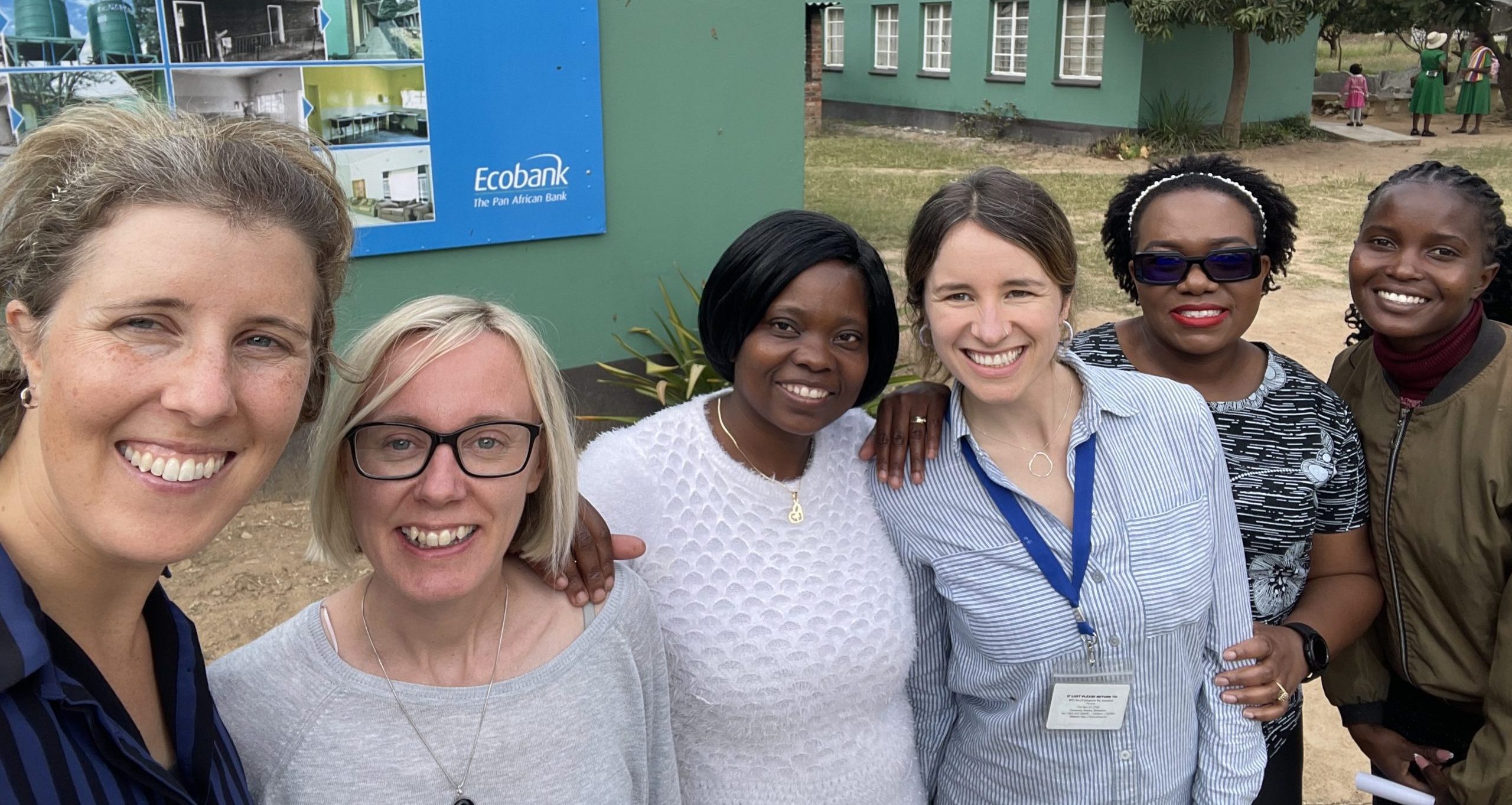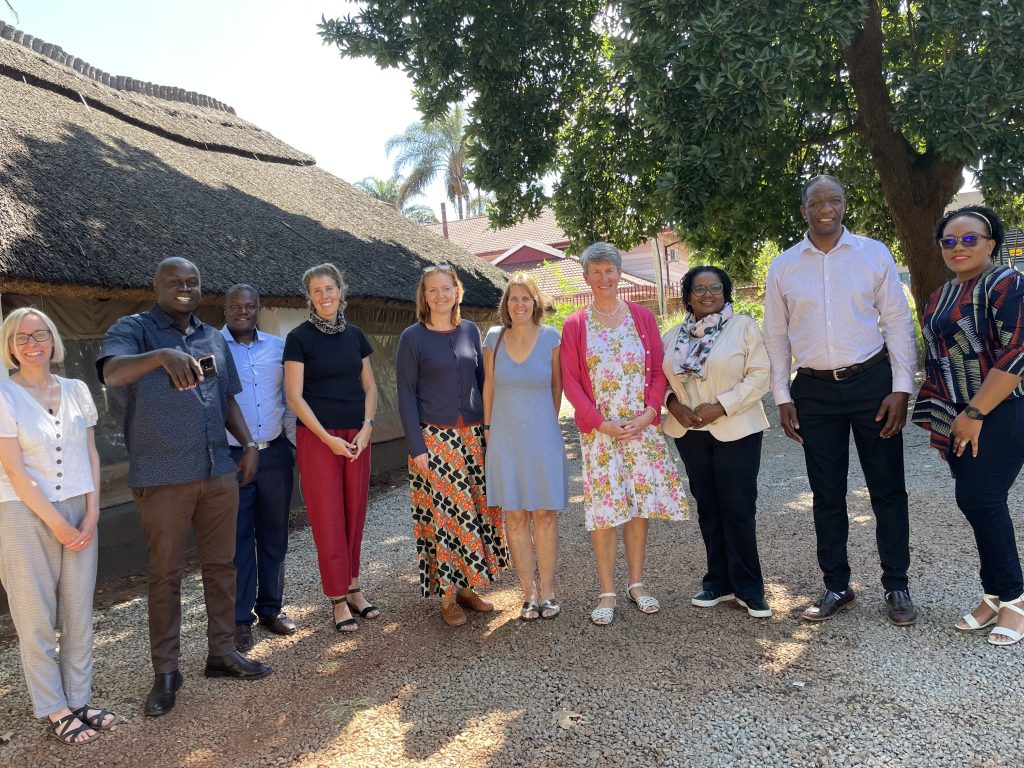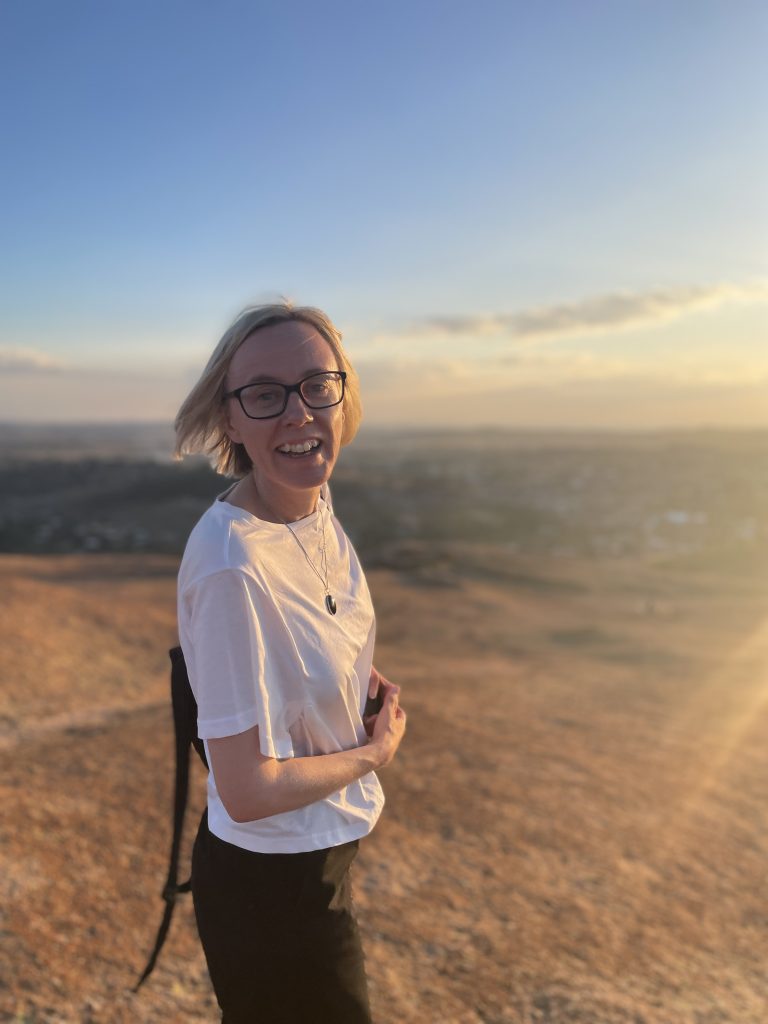Photo: A successful research morning at the Society for Destitute Aged in Hatfield, Harare. Left to right: Alexandra Bradbury, Dr Alexandra Burton, Kuziwa Nyamutowa, Kate Mattick, Maureen Tshuma and Sharmaine Chimuka.
Researchers collaborate to explore social prescribing for older adults in Zimbabwe
Read about the latest work of SBB team members Alexandra Bradbury (NIHR Pre-Doctoral Fellow) and Dr Alexandra Burton (UCL Honorary Senior Research Fellow).
19 June 2025

After months of planning, researchers from the United Kingdom and Zimbabwe came together in May to launch a project with care homes in the country’s capital, Harare. They are investigating whether social prescribing could improve the wellbeing of older adults aged over 65. Researchers span University College London, Queen Mary University of London, the University of Bristol, and The Health Research Unit Zimbabwe.
While most examples of social prescribing exist within publicly funded health services, the concept is becoming more popular around the world and both governments and private sector groups are adapting it for local contexts. It enables clinicians to refer patients to a “link worker” who is employed to connect them with services and organisations that can help with their non-medical needs. Social prescribing is usually appropriate for people who have long term conditions, who may need support for mental health or loneliness or isolation, and who have other complex social needs. However, it has not yet been implemented in Southern Africa.
Social prescribing may be particularly beneficial for older adults in Zimbabwe. The country has experienced significant demographic shifts in recent decades as younger age groups have migrated abroad for education and employment opportunities. This often means older adults don’t have family in the country to support them as they age and they may be forced to seek help from their doctors not just for their medical needs, but for their social needs as well.
Additionally, there are very few geriatricians and clinicians who specialise in older adult care in the country, and very little state social support is available for people as they age. Africa’s population is expected to triple from 2020 to 2050, and Zimbabwe is among countries where this growth is expected to be comparably larger—an alarming prospect for a government without the budget or human resources to meet the health needs of the older adult age group. However, if social prescribing is investigated early, Zimbabwe may be better equipped for its ageing population and serve as a model for the Southern African region.
This project therefore aims to establish whether social prescribing could fill this gap, exploring how older adults perceive it and if it could reduce the burden experienced by care home administrators and clinicians working with older adults.
So far, 35 individuals have taken part in the project, and researchers aim to enrol 50 overall. Additionally, the project has attracted the support of a dozen advisers and stakeholders from clinical groups, local NGOs and charities, academic institutions, and care homes. Qualitative findings will be summarised in a policy briefing, and researchers aim to publish 1-2 peer-reviewed articles and hold a dissemination event in Zimbabwe by the end of the year. Plans are already underway to explore how the project could be scaled to provide social prescribing designed specifically for care homes in Harare.
To learn more about the project, contact Alexandra Bradbury (alexandra.bradbury@ucl.ac.uk) who is a NIHR Pre-Doctoral Fellow at UCL and is currently leading the project. She is supervised by Dr Alexandra Burton at Queen Mary University of London and Professor Celia Gregson at the University of Bristol / The Health Research Unit Zimbabwe.

Photo: members of the project stakeholder group meeting at The Health Research Unit Zimbabwe in Harare. Left to right: Dr Alexandra Burton, Simbarashe Goneso, Daniel Mukonto, Alexandra Bradbury, Prof. Celia Gregson, Dr Carol Pascoe, Sharon Beffa, Kudzai Mpunzwana, Marck Chikanza and Maureen Tshuma. Organisations: Queen Mary University of London, Society of Destitute Aged, National Age Network of Zimbabwe, University College London, University of Bristol, Westreign Home, Zimbabwe Alzheimer’s and Related Disorders Association, and The Health Research Unit Zimbabwe.

Photo: Before returning to London, Dr Burton enjoys her last sunset in Domboshava, a granite outcrop north of Harare known for its views and ancient cave paintings.

